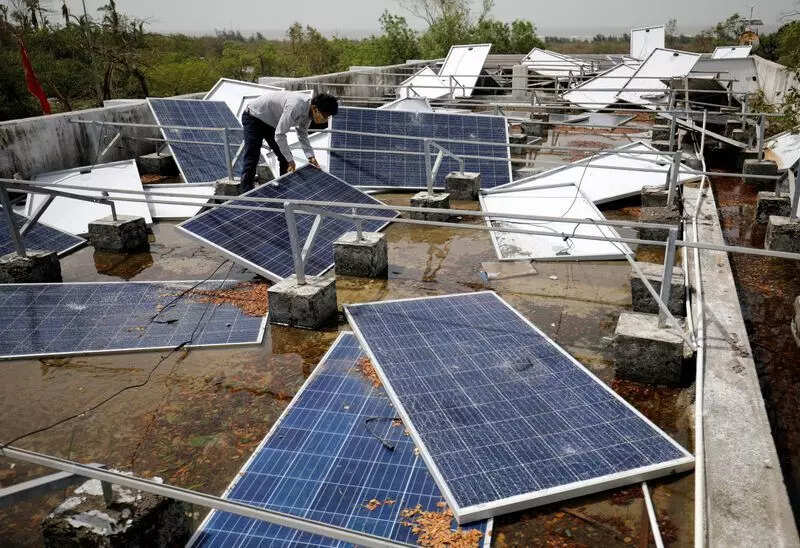- Renewable
- 3 min read
Tauktae result of climate change, expect more cyclones in coming years: Experts
A detailed analysis presented by Climate Trends highlights experts’ views on what made the cyclone such a huge disaster.

A detailed analysis presented by Climate Trends highlights experts’ views on what made the cyclone such a huge disaster. As per them, Tauktae has established an invariable relationship between global warming and cyclogenesis.
“It is now a well-known fact that the global ocean has absorbed 90% of the excess heat generated by greenhouse gas (GHG) emissions since 1970. This has led to anomalous ocean warming in Arabian Sea and Bay of Bengal, which in turn makes cyclones intensify rapidly. Heat is energy, and cyclones intensify rapidly by turning the potential energy stored in the ocean to kinetic energy,” said Matthew Roxy Koll, a climate scientist at the Indian Institute of Tropical Meteorology, Pune.
Normally, during May, the sea surface temperatures (SST) across Arabian Sea are around 28-29 degree Celsius. “But this season saw an unprecedented rise. Over threshold SST to the tune of 30°C -31°C across Arabian Sea gave rapid intensification to the storm,” the analysis stated.
With Tauktae, this will be the fourth consecutive year of pre-monsoon cyclone over the Arabian Sea. This is also the third consecutive year when a cyclone has come very close to the west coast of India. “It is very rare that a cyclonic storm with such high intensity is seen hitting the coast. This indicates the direct impact of global warming. Above threshold sea surface temperatures across Arabian Sea, particularly over east-central and adjoining northeast Arabian Sea that is known for comparatively cooler temperatures, kept on strengthening the cyclone,” said Mahesh Palawat, vice president, meteorology at Skymet Weather.
Experts warn that it is now clear that India will see more frequent cyclones every year due to global warming. “The past couple of years have seen a surge in the occurrence and severity of these cyclones which were a rare phenomenon earlier. The Arabian sea has sunk the carbons we have emitted into the atmosphere leading it to be warmer and more acidic. The warm oceans feed into cyclone systems that have devastating impacts on the life people in the coastal areas. India has one of the longest coastlines of 7500 km and therefore our vulnerabilities to the cyclones are exposed every time a new cyclone makes a landfill,” said Anjal Prakash, research director and adjunct associate professor at Bharti Institute of Public Policy, Indian School of Business.
Adding that the present infrastructure is not tuned into catering to extreme events, Prakash said, “Our coastal infrastructure needs to be climate-resilient.”
Stating more mitigation measures, Koll said, “Rapid intensification of cyclones need to be closely monitored at higher resolution and accuracy using on-site platforms such as buoys and moorings, Improving the Indian Ocean Observing System (IndOOS) and incorporating the global warming signals in the weather models can help us tackle the challenges of intense cyclones in the future.”
WHAT EXPERTS SAY
- Climate change is a crucial factor behind cyclone Tauktae
- Global ocean has absorbed 90% of the excess heat generated by greenhouse gas emissions since 1970
- Led to anomalous ocean warming in Arabian Sea and Bay of Bengal, which in turn makes cyclones intensify rapidly
- India will see more frequent cyclones every year due to global warming
- Coastal infrastructure needs to be climate-resilient
- Rapid intensification of cyclones need to be closely monitored



COMMENTS
All Comments
By commenting, you agree to the Prohibited Content Policy
PostBy commenting, you agree to the Prohibited Content Policy
PostFind this Comment Offensive?
Choose your reason below and click on the submit button. This will alert our moderators to take actions